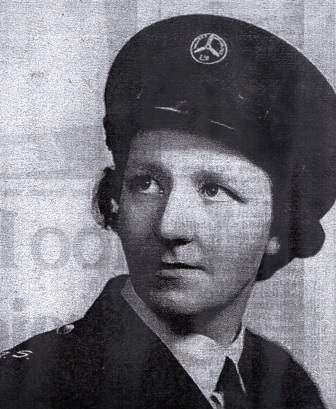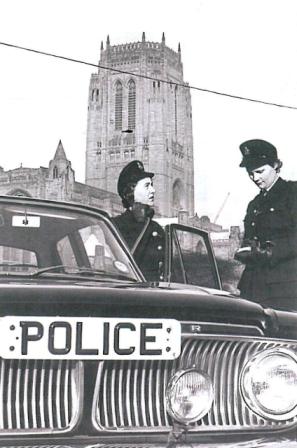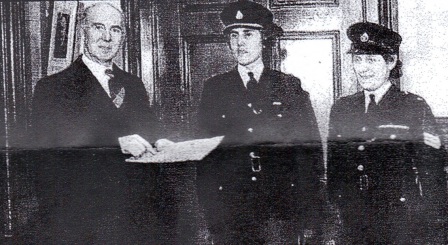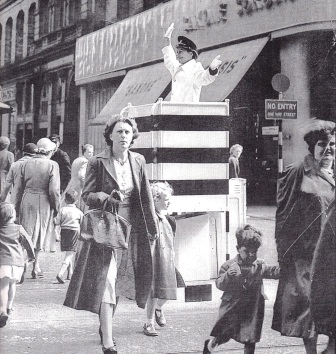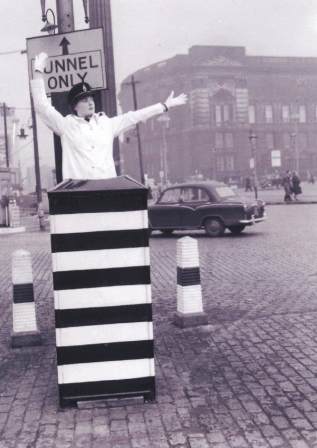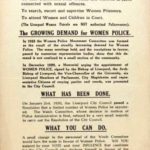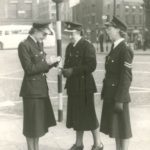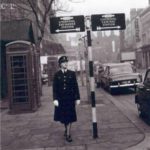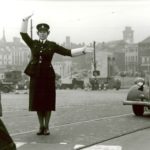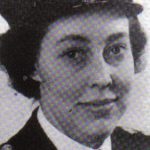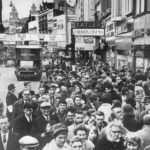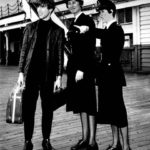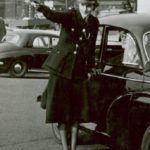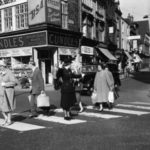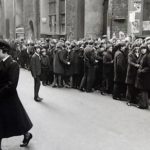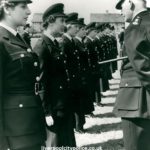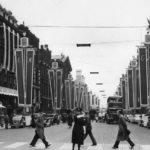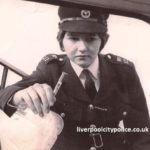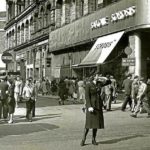A HISTORY OF POLICEWOMEN IN LIVERPOOL by albert kirby qpm, retired det. supt, merseyside police
Accounts of the history of the port of Liverpool, leading to the formation of the Liverpool City Police in 1836, clearly outlines how as a thriving port and the influx of seamen from throughout the world, an increasing problem was developing of young women being drawn into prostitution and other related crime.
Prostitutes were active throughout the pubs and clubs adjoining the dock area and there were many brothels to be found throughout the City.
The Liverpool City Police at this time, was like all forces throughout the country, a male only organisation and totally against any suggestion that female officers should be employed. During the period between 1912 and 1925, the Chief Constable of the City Force was a Francis Caldwell. Mr. Caldwell was a local man who rose through the ranks. He lead the force through the difficult times of the Police strike of 1919 and the Sinn Fein riots, leading to the developments of a far more professional Force that received praise for their ‘bearing and impartiality’ following the General Strike in 1926.
Mr. Caldwell identified the unique role women could perform in combating the increasing numbers of arrests of young women who were being attracted to the City and living ‘a sinful life’, particularly in the Lime Street and dock areas. Under his guidance, he saw the formation of voluntary women patrols under the auspices of the National Union of Women Workers in November 1914. The volunteers are described as being ladies from affluent sections of society who gave of their time freely.
By 1918, this voluntary organisation had received a grant of £100.00 and had opened an office in 5 Cases Street, the road opposite Central Station. Within 2 years, the volunteer women had also opened a hostel for young women in Old Swan.
The volunteer force remained in being until the formation of the Women’s Auxiliary Police Corps in 1939. The Auxiliary Corps continued dealing with the difficulties caused by the increasing influx of young women to the City and being reported missing from home by their distraught parents and remained in being until the formation of the Liverpool City Policewomen Corps on 31st. December 1947.
I recall an Aunt of mine (Cis Ure, nee Kirby) who was a member of the Women’s Auxiliary Police Corps during 1943-44 period telling me about her work in the City. She was a lady of no fear, being tall, well built and able to talk her way out of any trouble with her charming personality. My Aunt told me of visiting the pubs, clubs and brothels in the City, taking young girls into care and escorting them to a home in Old Swan, where they were cared for. Despite the conflict in role of the women and male police officers, she became close friends of some of them and would speak highly about the late Bert Balmer and Austin Rawlinson, who became significant figures in the Liverpool City Force.
When I joined the Liverpool City Force in 1964, my wife Susan had joined the force and was a member of the Policewomen’s department based at the old police headquarters in Hardman Street and then at Prescot Street Police Station. A number of the ladies who were members of the Women’s Auxiliary Corps were then members of the Policewomen’s department, including their most senior officer, the late Superintendent Ivy Woods. The Policewomen’s, department operating from HQ and throughout the force, dealt with all aspects of policing and maintained a key role in handling cases involving young offenders, children at risk, CID work and teaching road safety at schools. A role Susan performed for a numbers of years.
Even in 1964 there was some hostility towards the policewomen, especially by older officers. Fortunately over the years this faded away and the policewomen’s department became an integral part of the police service as we know it today. All police officers are now subject to the same conditions of service and are expected to perform the same role.
I still believe the role of the female officers is quite unique in the police service, as there are many roles that by the very nature of their personality and bearing are better dealt with by a female. In a similar manner, some of the roles are more suited to males and let us hope this continues to be identified by those in command of the modern police service.
Albert Kirby QPM
Retired Detective Superintendent
Merseyside Police


